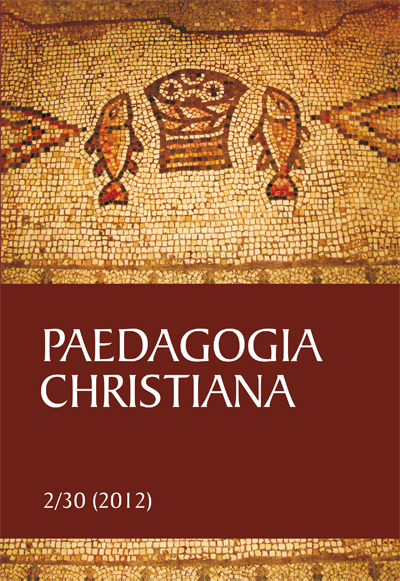Ideały wychowawcze w klasztornych szkołach żeńskich w okresie potrydenckim do początków XIX wieku
DOI:
https://doi.org/10.12775/PCh.2012.021Abstrakt
This paper discusses the upbringing and education of laic girls in convent schools from the last decade of the 16th century until 1815. The analysis is based on archival materials and literature. It focuses on the educational process carried out on the territory of Lesser Poland (Małopolska) which, as a result of the partitions of Poland, was initially partly within the Habsburg Empire and later, a part of it was incorporated into the Duchy of Warsaw. In order to thoroughly analyse the issues raised in the paper, the convent schools that functioned in Lesser Poland are compared to schools from other areas of the Republic. The paper focuses on the problems of girls’ education in convent schools belonging to four types of orders: the Order of the Virgins of the Presentation of the Blessed Virgin Mary (zakon prezentek), the Order of Saint Claire (zakon klarysek), the Norbertine Order (zakon norbertanek) and the Order of Saint Benedict (zakon benedyktynek). Among 18 female religious orders (with 154 monasteries in total) that functioned in 1772 on the territory of the Republic, only two did not run monastic schools for girls. The schools’ main postulates were: educating girls in the spirit of Catholicism, shaping their morals and developing their devotion, as well as teaching them the ideals of education were implemented in all schools. Their programs only differed when it came to teaching Polish, foreign languages, maths, music, dance and others skills. Such programs had an undeniable influence on the girls’ personality and aimed to prepare them for their future social role.When comparing the patterns in girls’ education during the time of partitions, some changes can be noticed. The schools’ character was conditioned by the shift of supervision over schools away from secular authorities, the introduction of the classroom system and the use of the same curriculum in each school of a particular type.
Pobrania
Opublikowane
2012-11-28
Jak cytować
1.
SZYLAR, Anna. Ideały wychowawcze w klasztornych szkołach żeńskich w okresie potrydenckim do początków XIX wieku. Paedagogia Christiana [online]. 28 listopad 2012, T. 30, nr 2, s. 11–28. [udostępniono 19.12.2025]. DOI 10.12775/PCh.2012.021.
Numer
Dział
Artykuły / Articles
Statystyki
Liczba wyświetleń i pobrań: 1626
Liczba cytowań: 0



